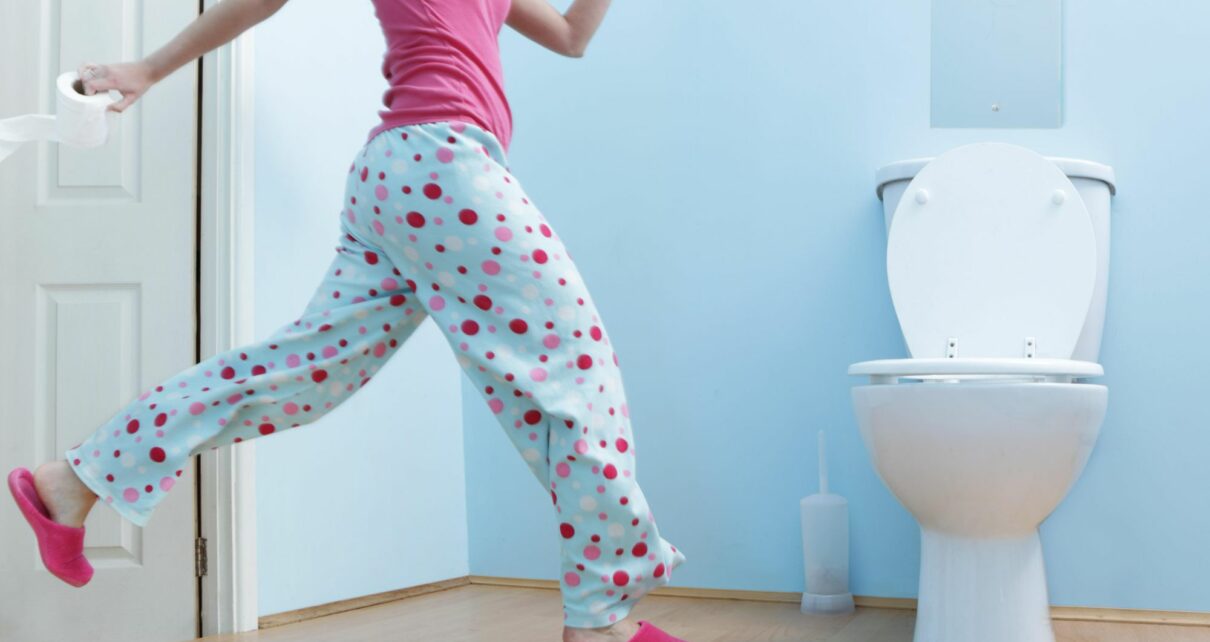YOU probably don't make a habit of examining your poo.
But now might be a good time to start – as it can actually tell a thing or two about your health and diet.


The shape of your poops is especially worth paying attention to.
Though everyone's number twos will vary, they'll often fall under one of the seven categories outlined by the Bristol stool chart.
It likens stools to various objects – from marbles, to caterpillars and amoebas.
But did you know that one shape – the hot dog shape – is considered by doctors to be the 'perfect poo'?
Read more on bowel habits
 POO KNEW?
POO KNEW?
The truth about 'caterpillar' poos – and how it's a sign something isn't right
 PHANTOM FAECES
PHANTOM FAECES
The truth about 'ghost poos' and why it’s a sign you’re 'super healthy'
Sausage-like poos that are soft and easy to pass are what Healthline calls 'the gold standard of poop' because it indicates that all is going smoothly with your digestion and that you're eating the right amount of fibre.
As GP Dr Sarah Jarvis put it: "Eating enough fibre, getting regular exercise and keeping your fluid intake up all contribute to this sort of poo.
"You’re likely to be going regularly and not needing to strain."
This is type three on the Bristol Stool Chart.
Most read in Health
 HIT THE SPOT
HIT THE SPOT
Key to having good sex revealed – and it’s surprisingly simple
 HAD YOUR FILL
HAD YOUR FILL
Women with fillers ‘at risk of painful & disfiguring side effects years on’
 DARK PLACE
DARK PLACE
I have to pull cartilage from my nose 3 times a day, it’s ruining my life
 JABS ALERT
JABS ALERT
Warning to parents as 1 in 10 kids at risk of deadly Victorian diseases
Snake-shaped poops that are softer than sausage-shaped ones and easier to pass are also considered normal.
According to Healthline, you should ideally get number twos like these every one to three days.
But anything on the other ends of the spectrum might mean you need to implement some changes to your diet or see a doctor.
Number one of the chart – marble-like pellets that look like nuts and are hard to pass – indicate you're constipated, as does number two.
These are caterpillar-like poos that are are long but still lumpy.
The best thing to do in this case is to eat some fruit, veg and cereals, which will give you the fibre you need to comfortably pass poos and get things moving in your system, according to the NHS,
It's also a good idea to hydrate and get moving – spending long periods sitting or lying down often spells disaster for your bowel habits.
Stress, anxiety and depression could also be playing a part in making your poops harder and lumpier.
Amoeba-like poos – small and easy to pass blobs – could mean you need need to add some fibre into your diet, according to Healthline.
But types six and seven – the soft serve and Jackson Pollock of poops – pretty much spell out that you've got a case of the runs, as your stool moved too quickly through your bowels to form a healthy poo.
Most cases of diarrhoea should clear up without treatment, according to the NHS, but it's a good idea to stay hydrated and to chose foods that are easy to digest.
Some foods and drinks might actually aggravate things further, including:
- High fibre foods, e.g. wholemeal bread, wholegrain cereals, brown rice and pasta and foods made with wholemeal flour
- Fruit juice
- Nuts and dried fruits
- Uncooked vegetables and fruit
- Beans, lentils and pulses
- Cauliflower, cabbage and onions
- Spicy, fried or very fatty foods, e.g. curries, chillies, cream, pastry, chips, etc
- Very hot or very cold food and drinks
- Alcohol, strong tea or coffee
- Fatty food
If your diarrhoea is severe or persists, it's a good idea to call your GP.
READ MORE SUN STORIES
 XMAS BLOW
XMAS BLOW
Argos axes payment option before Christmas leaving shoppers unable to buy gifts
 fresh stace
fresh stace
Stacey Solomon in major career move – 'it's a whole new chapter in my life'
It's unlikely that your number twos will look exactly the same every day.
But you should look out for unexpected and prolonged changes as they could be a sign of an underlying condition – especially if you're experiencing other symptoms at the same time.
Signs of bowel cancer
The five red-flag symptoms of bowel cancer include:
- Bleeding from the back passage, or blood in your poo
- A change in your normal toilet habits – going more frequently for example
- Pain or a lump in your tummy
- Extreme tiredness
- Losing weight
If you notice any of the signs, don't be embarrassed – chances are your GP has heard it all before.
Source: Read Full Article


